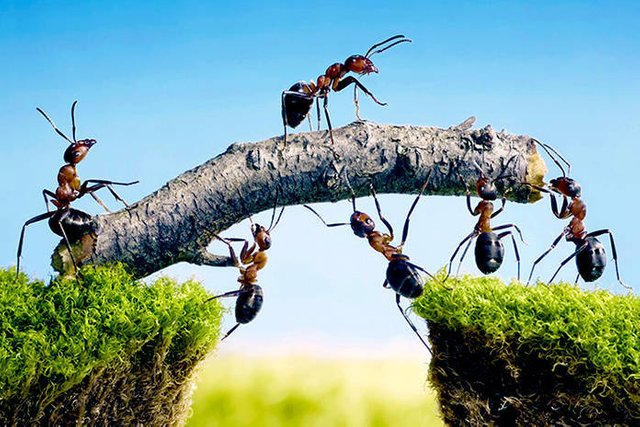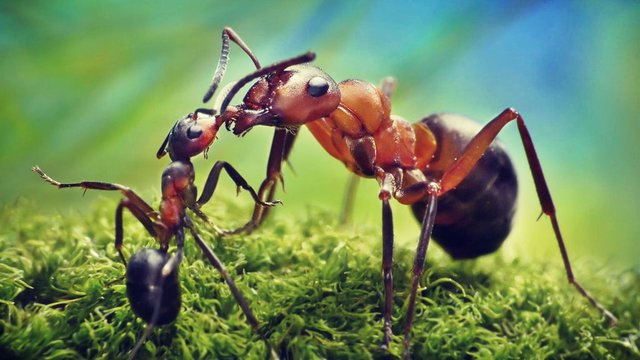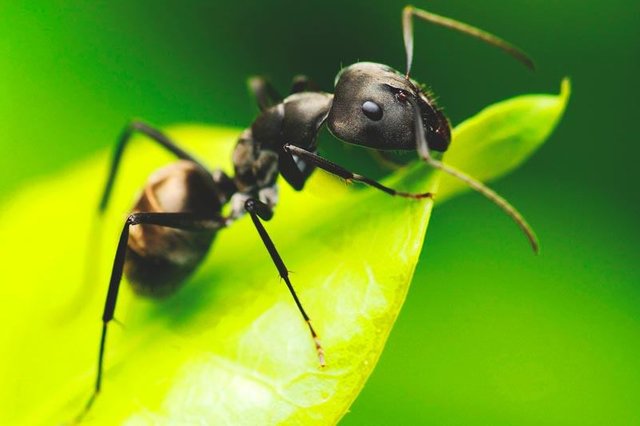DailyCeletialChallenge:Tuesday- Animalkingdom

Small insect very numerous and widespread. Live in colonies, It is estimated that there are about 10,000 varieties of ants, and are found throughout the globe, with the exception of the polar regions.
A people Just as Joel (1: 6) called the locusts nation, in Proverbs 30:25 the ants are said to be a people (heb.'am), an expression very appropriate to refer to these little ones. creatures. Although some colonies may only consist of a few dozens of ants, others have a huge population amounting to hundreds of thousands. The colonies are usually of medium size, but the anthill or the network of tunnels can sometimes measure almost half a hectare. Within each colony there are three basic castes: the queen or queens, the males and the workers (females not sexually developed)
(Pr 6: 7.)
The ant "has no commander, officer or ruler."

The queen is not called that because she governs the others; it is, rather, a mother ant, because its essential function is to lay eggs. Although a queen ant can live up to fifteen years, males only live long enough to mate and then die. The worker ants, whose life can reach six years, have different duties to perform, such as finding and gathering food for the colony, feeding the queen, being nurse of the larvae, cleaning the nest, digging new cameras as they are needed and defend it from intruders.
The worker ants differ in size even within the same colony, and the larger ones usually act as soldiers in case of anthill invasion. However, in spite of the precise distribution of work (which in some colonies is regulated according to the age of the workers and in others, according to size) and the relatively complex existing social organization, among them the role of foreman is not known
(Pr 6: 8.)
The Bible says that the ant 'prepares its food in the summer and collects its supply in the harvest'.
The ant stores grain in abundance during spring and summer, and then uses it in other seasons, such as in winter, when it becomes difficult to obtain food. This ant is usually found near the eras, where there are many seeds and grain. If the rain moistens the stored seeds, the harvester ant takes them out in the sun to dry. It also cuts with its jaws the embryo of the seed so that it does not germinate while it is stored. The colonies of harvester ants are distinguished by the paths that they trace, as well as by the husks of the seeds that leave outside the entrance.
As is natural, the 'wisdom' of the ants does not come from intelligent reasoning, but is the result of the instinct with which the Creator has endowed them with, Not only is he distinguished by his instinctive foresight, but also by his perseverance and determination, as he often carries or carries with great tenacity objects whose weight doubles or triples his own, and does everything possible to successfully complete his task without ever returning back even if it falls or slides down a steep slope. She is amazingly cooperative, keeps the anthill very clean and is interested in her companions, sometimes helping those who have been hurt or exhausted to return to the anthill.
If these little beings are capable of doing all that, then we must learn from them, always remembering that it is in us to help others wisely and turn our burdens into bridges that help us succeed
(Pr 6: 6.)"Go where the ant, oh lazy; look at his ways and become wise. "
